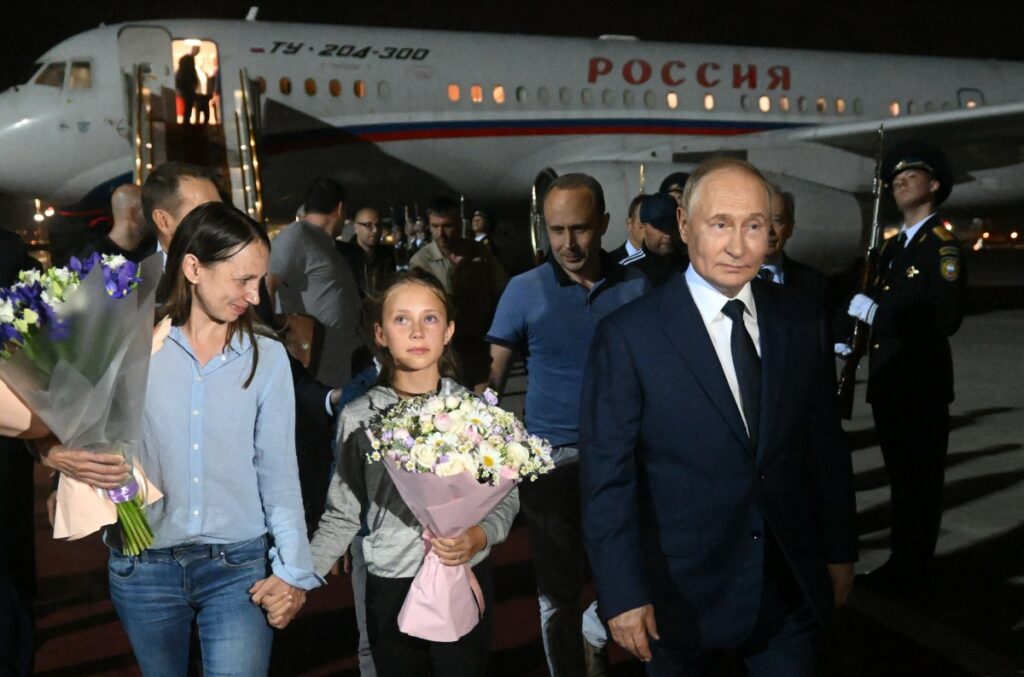When Slovenian law enforcement authorities arrested the Russian spy couple, they also found an “enormous” amount of money. There was so much money that they had to count it for hours. How much money did they find? And what, exactly, was this money used and intended for? This information has not been made public. Former Director of the Slovenian Intelligence and Security Agency (SOVA), Janez Stušek, helped us clarify some of the circumstances.
“Since I no longer have operational information, I can only give my assessment. The amount of money that informers have at their disposal depends on the tasks they have been entrusted with. Given the publicly available information that the activities were directed mainly abroad and only partly in Slovenia, we can speak of tens of thousands of euros or even millions of euros. I cannot imagine that they would have carried a larger sum of money than that, if only because of the risk of robbery. But if their activities were limited to Slovenia, we would, of course, be talking about smaller sums,” said Stušek.
What happened to the seized money?
There is also the question of the fate of the seized money. Stušek explains that it most likely ended up in the state budget, as the two convicted spies have pleaded guilty. “There is also the possibility that the money could have been returned to the informers, but this is highly unlikely. The chances of something like that are extremely small,” he believes.
We also asked Stušek about the type of operations that were financed with the seized money. He explained that two types of operations are financed in this way, namely the “acquisition and dissemination” of information. The price of the information obtained depends on the type and usefulness of the information. “The position of the compromised individual often plays no role in this. Sometimes, obtaining information from a low-level official can be much more expensive than obtaining information which an embarrassed, careless or compromised politician shares voluntarily,” explained our interlocutor. When it comes to publicly divulging information or trying to influence public opinion, it depends mainly on the public “weight”, influence and prestige of the person doing it.
“Information dissemination operations or attempts to shape public opinion are significantly cheaper for intelligence organisations than those aimed at obtaining information,” Stušek further explained.
He also explained that intelligence services primarily “target” individuals who are inherently sympathetic to their country. Often, intelligence activity takes place at the level of friendly contacts. Foreign intelligence services are also very interested in disgruntled employees (for a variety of reasons) of public institutions, including the Slovenian Intelligence and Security Agency – SOVA. “Creating a good working environment is therefore essential,” he believes.
And what about funding political ventures, such as pro-Russian parties and political movements? Stušek refused to comment on individual cases, except to say that any foreign funding tied to a specific political agenda can be problematic. As he explained, this area is plagued by a lack of control and transparency.
Slovenia is a small but interesting destination for intelligence officers
It is often heard in the public domain that Slovenia is too small and too insignificant to be of interest to global intelligence organisations. But Stušek warns that this assessment is not entirely correct. “Slovenia is a member of NATO, where each country has one vote, so this should not be ignored, nor should the fact that Slovenia is a member of the European Union. Slovenia’s involvement in international integration and the related access to classified information, as well as the fact that the Slovenian Intelligence and Security Agency is limited compared to the intelligence services of larger countries, makes Slovenia interesting,” he explained.
We also wanted to know how soon Russian intelligence will be able to resume its operations in Slovenia. It is hard to imagine that they would accept the information vacuum that has been created. “The obvious strategic assessment that Slovenia is a weak point or soft underbelly of NATO or the EU has certainly not changed. There is certainly an interest in renewing this network. But beware, if one of the centres of their intelligence network has been shattered by the arrest of these Russian spies, then it will take a long time to rebuild it. Outreach often takes place at the level of personal contacts, and cultivating these takes time,” he explained.
Slovenian Intelligence and Security Agency’s limited capacity
Before the end, we asked the former Director of the Slovenian Intelligence and Security Agency about the Agency’s capacity and its shortcomings. In his view, the Agency needs three sets of changes: staff reinforcement, modernisation of sectoral legislation, and the establishment of professional oversight of the Agency’s work.
“We should want to see an improvement in the Agency’s capacities. A prerequisite for this is investing in people, both in terms of improving their professional skills and at the level of selecting the right staff. Intelligence should be carried out by personnel who do it with the proverbial heart and soul, who are committed to their country, who have a high level of innate skills for the job and who are independent of political options,” Stušek commented. He went on to say that, after all, “The Agency is also plagued by too frequent changes of directors. On average, each director leads the Agency for only one and a half years.”
Žiga Korsika


